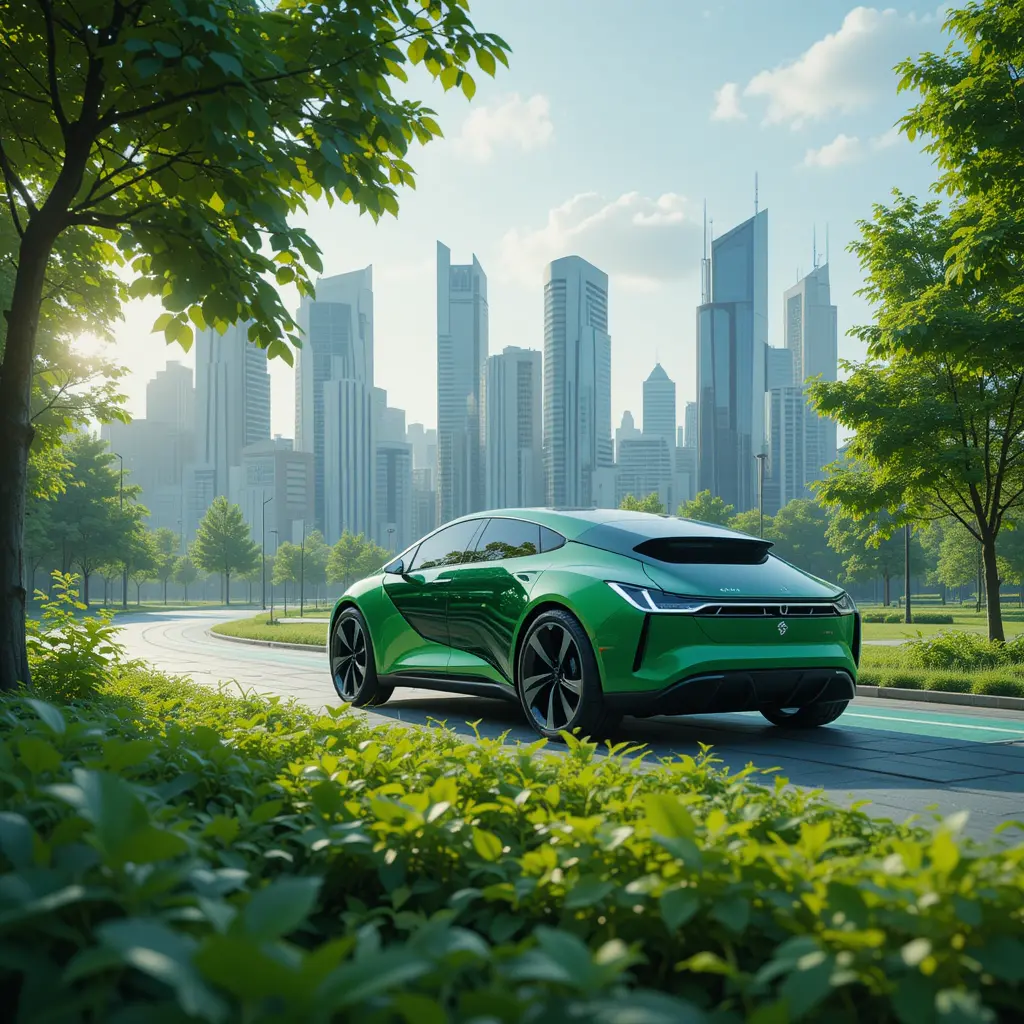Electric vehicles are transforming the way we think about transportation. As technology advances, these vehicles offer a glimpse into a future where travel is cleaner and more efficient. This shift not only impacts how we move but also how we interact with our environment. In this article, we explore the key innovations driving this change and what it means for the future of transportation.
The Rise of Electric Vehicles
Electric vehicles (EVs) are no longer a distant dream. They are becoming a significant part of our daily lives. As a transportation engineer, I have witnessed firsthand how these vehicles are reshaping our roads and cities. The shift from traditional fuel to electric power is not just a trend; it’s a revolution. This change is driven by the need for cleaner, more sustainable transportation options.
The Growing Popularity of Electric Vehicles
In recent years, the popularity of electric vehicles has surged. More people are choosing EVs for their daily commutes. This shift is largely due to the environmental benefits they offer. Unlike gasoline cars, EVs produce zero emissions, which helps reduce air pollution. I remember a conversation with a colleague who switched to an electric car. He mentioned how he felt he was contributing to a cleaner planet. This personal choice reflects a broader societal change.
Another factor driving the rise of electric vehicles is the advancement in technology. Battery life has improved significantly, allowing for longer trips without frequent charging. Charging stations are becoming more common, making it easier for EV owners to travel long distances. I often compare this to the early days of smartphones. Initially, there were concerns about battery life and charging. But as technology advanced, these concerns diminished. Similarly, the infrastructure for EVs is rapidly evolving.
From my perspective, the rise of electric vehicles is a positive development. It aligns with the global push towards sustainable living. As more people embrace this change, we will see a transformation in how we think about transportation. The future of transportation is electric, and it’s exciting to be part of this journey. How Electric Vehicles Are Changing the Future of Transportation is not just a statement; it’s a reality unfolding before our eyes.
Environmental Impact of Electric Vehicles
Electric vehicles (EVs) are making waves in the transportation sector, promising a cleaner and more sustainable future. As a transportation engineer, I have witnessed firsthand the shift from traditional fuel-powered vehicles to electric ones. This transition is not just a trend; it’s a necessary evolution. The environmental impact of EVs is profound, and their role in reducing pollution is undeniable.
Reduction in Emissions
One of the most significant benefits of electric vehicles is their ability to reduce emissions. Unlike gasoline cars, EVs produce zero tailpipe emissions. This means they do not release harmful pollutants like carbon dioxide and nitrogen oxides into the atmosphere. Imagine a city where the air is cleaner, and the skies are clearer. This is the potential future that EVs can help create. In my experience, cities that have embraced electric vehicles have seen a noticeable improvement in air quality.
However, it’s important to consider the source of electricity used to charge these vehicles. If the electricity comes from renewable sources, the environmental benefits are even greater. As we continue to develop cleaner energy solutions, the positive impact of EVs will only increase. This is how electric vehicles are changing the future of transportation, by paving the way for a more sustainable world.
Technological Advancements in Electric Vehicles
Electric vehicles (EVs) are not just a trend; they are a significant leap forward in how we think about transportation. As a transportation engineer, I have witnessed firsthand the incredible technological advancements that are reshaping our roads. From improved battery life to smarter charging solutions, these innovations are making EVs more accessible and efficient.
Battery Technology Breakthroughs
One of the most exciting developments in EV technology is the improvement in battery performance. Modern batteries are not only more powerful but also last longer. This means drivers can travel further without needing to recharge. I remember a time when a long road trip in an EV seemed daunting. Now, with advancements like lithium-ion and solid-state batteries, range anxiety is becoming a thing of the past. These batteries are lighter and more efficient, which directly impacts the vehicle’s performance and energy consumption.
Another fascinating aspect is the integration of smart technology. Many EVs now come equipped with features that allow them to communicate with charging stations. This ensures that the vehicle is charged during off-peak hours, saving money and reducing strain on the power grid. It’s like having a car that knows when to fill up its tank at the cheapest gas station, but without the emissions.
Real-World Impact and Personal Insights
In my experience, the shift towards electric vehicles is not just about technology; it’s about changing the way we live. I once spoke with a family who switched to an EV and found that their daily routines became more efficient. They planned their trips around charging stations, which led to discovering new places and spending more quality time together. This is a small example of how electric vehicles are changing the future of transportation by influencing our lifestyles in unexpected ways.
As we continue to innovate, I am optimistic about the future of EVs. The combination of cutting-edge technology and a growing awareness of environmental issues is driving this revolution. It’s an exciting time to be part of this transformation, and I believe that as these advancements continue, we will see even more profound changes in how we move from place to place.
Challenges and Opportunities in the Electric Vehicle Market
The electric vehicle (EV) market is a dynamic landscape filled with both challenges and opportunities. As a transportation engineer, I see firsthand how electric vehicles are changing the future of transportation. This shift is not without its hurdles, but it also presents exciting possibilities for innovation and growth.
Challenges in the Electric Vehicle Market
One of the primary challenges is the infrastructure required to support EVs. Charging stations are not as widespread as traditional fuel stations, which can deter potential buyers. I remember a road trip where finding a charging station felt like searching for a needle in a haystack. This experience highlighted the need for a more robust charging network. Additionally, the initial cost of EVs remains high, making them less accessible to the average consumer. Battery technology, while improving, still faces issues with range and longevity, which can be a concern for long-distance travelers.
Opportunities for Growth and Innovation
Despite these challenges, the opportunities in the EV market are vast. The push for sustainability and reducing carbon emissions is driving innovation in battery technology and renewable energy integration. I am particularly excited about the advancements in battery recycling, which could significantly reduce environmental impact. Moreover, government incentives and policies are encouraging both manufacturers and consumers to embrace electric vehicles. This support is crucial in accelerating the transition to a more sustainable transportation system. As we continue to innovate, the potential for electric vehicles to reshape our cities and reduce our carbon footprint is immense.
Conclusion
As we look towards the horizon of transportation, the impact of electric vehicles (EVs) is undeniable. They are not just a trend; they are a transformative force reshaping how we move. From bustling city streets to quiet suburban roads, EVs are making their mark.
The Road Ahead
Electric vehicles are more than just cars; they represent a shift in our approach to mobility. I remember a conversation with a fellow transportation engineer who compared the rise of EVs to the transition from horse-drawn carriages to automobiles. It’s a leap forward, driven by necessity and innovation. How Electric Vehicles Are Changing the Future of Transportation is evident in the way cities are adapting, with charging stations becoming as common as gas pumps.
In my experience, the adoption of EVs is not just about technology; it’s about changing mindsets. People are beginning to see the benefits, from reduced emissions to lower running costs. I once spoke with a family who switched to an electric car and found their monthly expenses significantly reduced. This personal touch, this real-world impact, is what makes the transition so compelling.
As a transportation engineer, I am excited about the potential of EVs to create a cleaner, more efficient future. The journey is not without its challenges, but the destination promises a world where transportation is sustainable and accessible. The revolution is here, and it’s electric.






